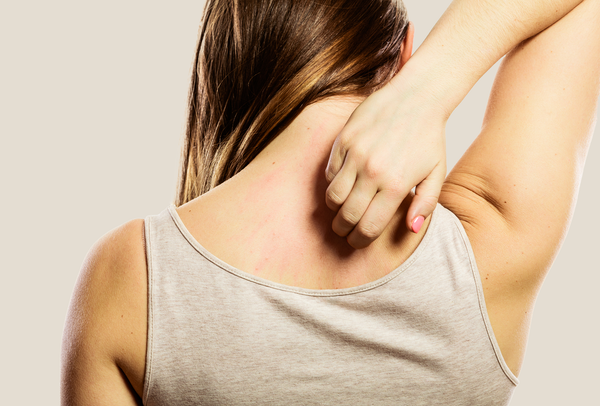Have you ever wondered why some hair is curly, some is straight, and some falls somewhere in between? At the end of the day, it all comes down to genetics and the fact that hair follicles are pre-programmed to create curly (or straight) hair.
The shape and angle of the hair follicles
When you take a closer look at hair follicles beneath a microscope, they are as unique as you are. A few specific follicle attributes dictate the ultimate shape of each individual strand of hair, which ultimately determines whether it is straight, wavy, or curly.

In people with curly hair, the hair follicles are shaped like ovals—and the flatter the oval, the curlier the resulting hair. (On the other hand, round hair follicles produce straight hair.) But that’s not all… The angle at which the hair follicle tunnels into the scalp plays a role as well. If follicles are angled into the skin, the hair will curl as it grows, whereas vertically oriented follicles make straight hair. And curly hair isn’t the only result of curved follicles. Dryness is also associated with curly hair because the curve prevents the skin’s natural oil (called sebum) from coating the entire length of the strand.
What type of curly hair do you have?
All curly hair is not created equal, and there are different levels of curliness that range from wavy to coily and kinky. In addition to the role the shape and the angle of the follicles play in curly hair, then there are disulfide bonds… If you think of curly hair as a Slinky, the more disulfide bonds along the hair shaft, the tighter the Slinky will be—and the tighter the curls will be.
There’s actually a scale that can be used to categorize the level of curliness:
- Type 1: Straight
- Type 2: Wavy
- Type 3: Curly
- Type 4: Coily
There are also sub-classifications that depend on the diameter of the curl pattern. Type A is wide, type B is medium, and type C is the smallest. And just so you know, many of those with type 3 and 4 hair have a combination of curl shapes and patterns.
The needs of curly hair
Curly hair is generally drier than straight hair thanks to those curved hair follicles, so giving this type of hair the moisture it needs is a top priority. Frizz is a common concern for those with curly hair, but many products designed to minimize its appearance are formulated with silicone, polymers, and heavy oils or waxes that weigh curls down and can lead to clogged pores. (Though there is conflicting data, silicones have the most potential to clog pores in combination with other ingredients that they can trap on the skin.)
Developed by Harvard-trained dermatologist Dr. Iris Rubin, SEEN’s non-comedogenic (i.e. won’t clog pores), non-irritating shampoo and conditioners are formulated to meet the hydration needs of all hair types without leaving a heavy or greasy feel—and the Deeper Conditioner is ideal for drier, curlier hair that needs even more moisture.
When it comes time to style, SEEN Curly Creme is designed to enhance curl definition, prevent frizz, and provide protection against heat styling, hair-damaging UV rays, and pollution in medium to thick hair without a crunchy or stiff feel. Those with finer curls can reap the same benefits from SEEN Blow-Out Creme and these styling cremes can also be used for air-drying. Mix in a few drops of SEEN Magic Serum for extra protection against frizz and breakage, and remember that all SEEN products are available fragrance-free for those who want or need to avoid any scent!




